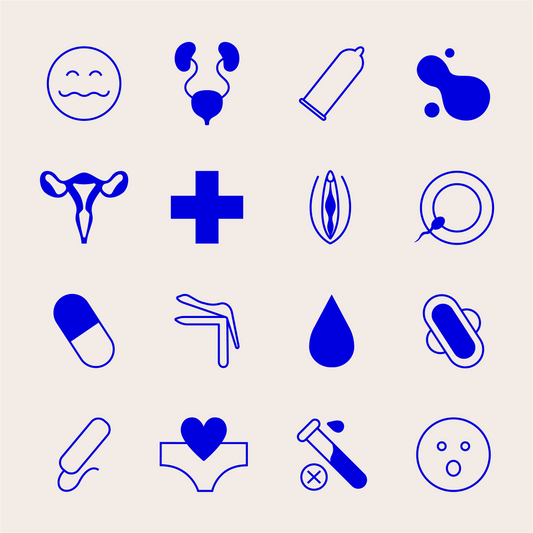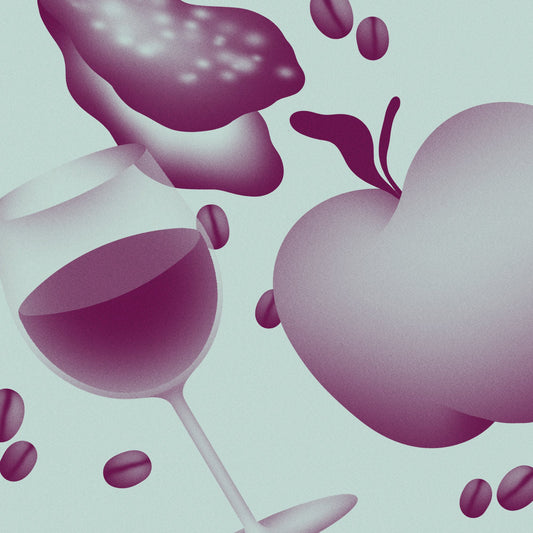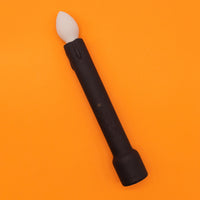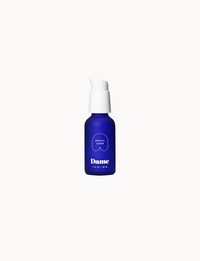Alexandra Fine, Credentialed Sexologist, M. Psych | Written by Dame
“Male” and “Female” terms | Why Would Sexual Enhancement Be Necessary? | Read Before Buying | Supplements | Pills | Will It Make Sex Even Better?
Enhance (verb): to raise to a higher degree; intensify; magnify.
The definition on dictionary.com isn’t specific about what would be considered an enhancement. So when we’re considering the phrase “sexual enhancement,” there are many possibilities.
- Candles and sexy music are time-honored tools for many couples who want to establish the perfect mood in the bedroom.
- Champagne and lingerie are must-have aphrodisiacs for others.
- For some, erotica, porn or BDSM toys can take an encounter to the next level.
- And there are those who enjoy the use of recreational drugs in their sexual play.
All of those approaches may enhance a sexual experience – raising it to a higher degree, intensifying or magnifying it.
But that’s not what sexual enhancement really means to most people.
Almost everyone understands that “sexual enhancement” is normally followed by another word: “supplements,” “pills” or “drugs.”
That may because 31% of penis-havers and 43% of vulva-havers report suffering with some form of sexual dysfunction. Or it may be because we’ve been inundated with broadcast, print and online ads for products promising to make our sexual experiences better than ever.
The “why” doesn’t really matter, of course. The truth is simple: the phrase immediately makes us think of herbal or pharmaceutical methods of sexual enhancement.
So let’s talk about them.
A Quick Note on the Terms “Male” and “Female”
Our discussion, at times, may refer to “men” and “women,” “male” and “female,” or “both sexes.”
The terms are not intended to conflate someone’s gender identify with their sex assigned at birth or their possible transition status. It’s used here simply because research into sexual response and dysfunction – and the advertising designed to sell enhancement products – commonly distinguish between two groups, penis owners and vulva owners. The former are almost always described as “men” and the latter described as “women.”
So if we refer to something as a “male enhancement supplement,” for example, it’s only because both research studies and product marketing tend to use that type of description.
Why Would Sexual Enhancement Be Necessary?
Those who enjoy a satisfying sex life probably have no need or desire for a sexual enhancement product.
It’s important to emphasize, though, that “satisfying sex life” means different things to different people. Someone with a low libido who is happy with occasional sexual activity, and someone else with a voracious sexual appetite, can each be fully “satisfied” with the type and frequency of sex they enjoy.
However, you might be surprised to learn just how many people feel that their sex drive is problematically low – meaning it either causes them distress, or causes serious problems in their life and relationships.
Research repeatedly shows that about 25% of pre-menopausal vulva-havers complain of a low interest in sex; one study reports that more than half of post-menopausal respondents have a low level of sexual desire. Statistics are harder to come by for penis-havers, but available information implies that about 20% of them have libido issues.
Low sex drive isn’t the only problem that leads people to try or use sexual enhancement products, needless to say. An estimated 30 million penis owners in America suffer from erectile dysfunction (ED), with the issue becoming more common as they grow older. That’s created a $4 billion annual market for erectile dysfunction drugs like Viagra and Cialis, and it’s given rise to a lucrative industry that manufactures and sells “natural male enhancement supplements.”
For the purpose of this discussion, we’ll put prescription drugs into their own separate category. They include Viagra and similar medications for ED. They also include medications like Vyleesi and Addyi; those meds are used to treat vulva-havers’ diagnosable lack of desire or avoidance of sexual contact, known as Female Sexual Interest/Arousal Disorder.
Medications used to treat sexual dysfunction must be approved by the U.S. Food and Drug Administration (FDA), and can’t be used casually by those seeking sexual enhancers.
So our primary focus is on sexual enhancement supplements that are readily available to consumers without a prescription. Let’s dig into those details next.
Before Buying Sexual Enhancement Products, Read This
If you’re experiencing sexual dysfunction of any sort, your first step should be to speak with your doctor or a health care professional. Erectile dysfunction, a lack of sex drive or sexual stamina, pain during sexual activity, and a number of other sexual problems are most often caused by physical, medical, lifestyle or mental health issues.
Those health problems may very well be treatable with medical intervention, medication prescriptions or changes, hormone treatments, psychotherapy, or relationship counseling. In fact, something as mundane as weight loss has helped some people restore their sexual function and/or sexual desire. All of these options are usually more reliable choices than over-the-counter “sex pills.”
Sexual Enhancement Supplements
Some sexual health supplements are marketed primarily as tools for penis-havers who are experiencing issues with their sexual performance or libido. Others are aimed at vulva-havers. However, most enhancers appear to provide some sexual health benefits for both.
L-Arginine
Our bodies rely on amino acids to perform important support and maintenance functions. Arginine is one of them. It’s not considered an essential amino acid for adults, but it’s crucial during times of stress and illness. The body produces some of this substance, and we get more of it from food in the form of L-arginine.
What’s most interesting for our purposes is what happens to L-arginine when we consume it: the body converts much of it into nitric oxide. Nitric oxide acts as a vasodilator, widening blood vessels to improve circulation – the same basic action that’s promoted by drugs like Viagra.
You can probably understand the implications. Poor blood flow to the genitals is the primary cause of erectile dysfunction (ED), and a contributing factor in arousal difficulty. Inducing an increase in blood flow, then, is a very good way to attack both types of problems.
Research confirms that L-arginine does just that. It’s been shown to be an effective treatment for erectile dysfunction (which often leads to a decreased sex drive), and has been found to boost sexual desire in vulva owners suffering from low libido.
In other words, L-arginine appears to be a good choice for anyone in search of sexual enhancement – unless they are already on ED medications, or taking some types of blood pressure or heart medications that don’t play well with L-arginine supplements.
Maca
This root vegetable has been used for centuries, for a variety of purposes, in the Andes Mountains where it grows naturally. It reportedly supplies an energy boost, improves mood, and helps the body create an important supply of antioxidants. More importantly for this discussion, Peruvian natural medicine practitioners have also used it to treat sexual dysfunction issues.
Modern studies have shown that maca root apparently does provide at least one of those benefits. A meta-analysis of studies has discovered that maca seems to be somewhat effective as a tool to increase sexual function. And one research project found that maca root may help ease or erase sexual dysfunction and lack of sexual drive in post-menopausal vulva-havers, who are taking SSRI medications for depression.
As for maca and ED, the jury is still out. But there is some evidence that it may be somewhat effective for some penis owners.
Ginseng
It goes by many names, but whether it’s called Asian ginseng, Korean ginseng or simply ginseng, this herb is one of the most popular dietary supplements on the market. People take it to boost immunity, improve their mood and brain function, support their immune system, and reduce their glucose levels..
It’s also been revered for years as an aphrodisiac, and there’s some science to back up that common belief. Studies have found that Korean ginseng appears to increase sexual arousal in some vulva-havers, and that red ginseng shows promise as a treatment for erectile dysfunction as well.
Caution should be exercised, though, due to side effects. Ginseng can lower blood sugar levels, it can cause insomnia, and it’s not believed safe for use by those who are pregnant or nursing.
Ginkgo Biloba
Some people use gingko biloba to treat the effects of PMS; other people take it to boost memory performance or lower anxiety. The herb can play another important role, though: it can improve blood flow – and as we’ve discussed, that’s essential for optimal arousal and sexual satisfaction.
So far, proof of ginkgo biloba’s effectiveness for overall sexual enhancement purposes is limited. But there is research showing that it may help treat ED (because of increased blood flow to the penis), and improve sex drive in patients taking antidepressants and vulva-havers who have gone through menopause.
Omega-3 Fatty Acids
One of the most popular dietary supplements in America is Omega-3 fatty acids, and there’s a very good reason why. They’ve been shown to be a very effective weapon against heart disease.
They do something else quite interesting, too. These fatty acids have been shown to increase levels of dopamine in the brain. As a “feel-good” hormone, dopamine is a key contributor to sexual desire and performance. And low dopamine levels can cause a low sex drive. Omega-3s also help to ease depression and anxiety, two more common causes of low libido.
Tribulus Terrestris
We’re now entering territory where sexual enhancement supplements may help one sex more than the other.
Tribulus terrestris is another reputed aphrodisiac that appears to live up to its reputation. Research shows that, for those with vulvas, tribulus terrestris seems to increase sex drive, sexual performance and overall satisfaction. There are side effects to be aware of, though, as it can cause health issues for those who are pregnant or nursing, and may interact with heart and blood pressure drugs.
The news isn’t quite as good for penis owners. It’s true that studies have found that tribulus terrestris may help to increase testosterone levels and reduce erectile dysfunction issues in patients with low levels of sex hormones. Here’s the bad news: there’s no evidence that it can provide much benefit to other penis-havers. In fact, it may cause prostate issues. In other words, this herb appears to be a better option for vulva-havers.
Saw Palmetto and Zinc
Here are two for the penis owners.
The most common use of saw palmetto is to treat symptoms of prostate issues and boost prostate health. But there’s been some research indicating that this palm extract may also be able to help maintain testosterone levels in the body; it apparently counteracts the work of an enzyme that would otherwise convert testosterone into a different hormone. And more testosterone, as we’ve discussed, means fewer issues with sexual dysfunction.
Zinc is an important dietary nutrient. The mineral supports immunity and cell growth, and it’s a common ingredient in multivitamins. There’s also research implying that, in small amounts, it may help boost testosterone levels and even prevent premature ejaculation.
Horny Goat Weed and DHEA
These are very different supplements, but they have two things in common. One is that they’re sometimes taken to increase sexual desire and function; the other is that there’s no evidence that they work.
Horny goat weed is a traditional treatment for low libido and ED (as well as infertility) in Chinese medicine. It’s an ingredient often found in male enhancement pills, because there’s limited evidence – collected from studies done in test tubes and with animals – that it may actually help a bit with “male” sexual dysfunction. To date, however, there’s no convincing evidence that it has any effect on sex drive.
That brings us to the hormone DHEA, naturally produced by the body but also available in supplement form. It’s sometimes taken to help ease the effects of menopause, which has led some pre-menopausal vulva-havers to try DHEA for a possible libido boost. Once again, though, there’s no evidence that taking the hormone can have any effect on sexual desire.
What about Those Sexual Enhancement Pills?
“Best Male Enhancement Pills!” “Best Female Libido Boosters!”
The ads seem to be everywhere, touting the benefits of over-the-counter sexual enhancement products. Are they worth trying?
It depends. These products, unlike stand-alone dietary supplements, combine a number of herbs and other substances that purportedly provide a cornucopia of sexual health and wellness benefits.
For example, the male enhancement supplement ProSolution contains ginseng and zinc. It also contains other herbs that have never been proven to provide any sexual benefit, and a number of other substances – some of which you (and we) have never even heard of.
Similarly, the female enhancement pill Provestra contains ginseng and ginkgo biloba. But it also contains ingredients like red raspberry and ginger root, which may help support immunity but are not known to have any effect on sexual desire or performance.
There’s a big problem with most of these enhancement products: the FDA doesn’t regulate them. As long as their manufacturers clearly state that the supplements aren’t designed to treat medical conditions, and as long as the products contain at least one vitamin, mineral, enzyme or amino acid, the FDA has no responsibility to regulate them.
That means the companies making and selling enhancement pills are free to put just about anything they want into their supplements, even if the ingredients are useless.
Even worse, no one has the responsibility to test them. There’s no one making sure the ingredients are pure and properly sourced. (Some manufacturers include small amounts of pharmaceutical drugs, like Viagra, to make their products “work better”). There’s no way for a consumer to know if the pills can cause allergic reactions or side effects, either.
The best approach, after doing the appropriate research, is to take herbs or supplements separately, instead of grabbing a “look at all the great stuff in here!” pill. If you do want to try one of these enhancement products, though, you should read the ingredient list carefully to ensure that the product only contains natural ingredients. Even better, check with your doctor first.
Will Sexual Enhancement Pills Make Sex Even Better?
If you’re dealing with sexual dysfunction or desire issues, they might. Otherwise, they probably won’t help very much.
A supplement like maca, which may also provide an boost of energy, could be worth a try. Taking Omega-3 fish oils might boost dopamine levels and make sex more enjoyable. But there’s really no reason that a vasodilator like L-arginine, for instance, would have much effect on sexually healthy adults and their performance or enjoyment.
What about the use of alcohol, weed, and party drugs like ecstasy as sexual enhancers? Sorry, that’s a subject for a different article.


















































